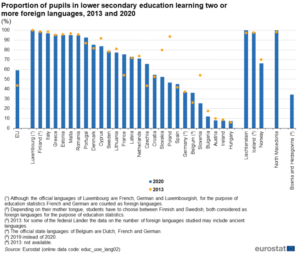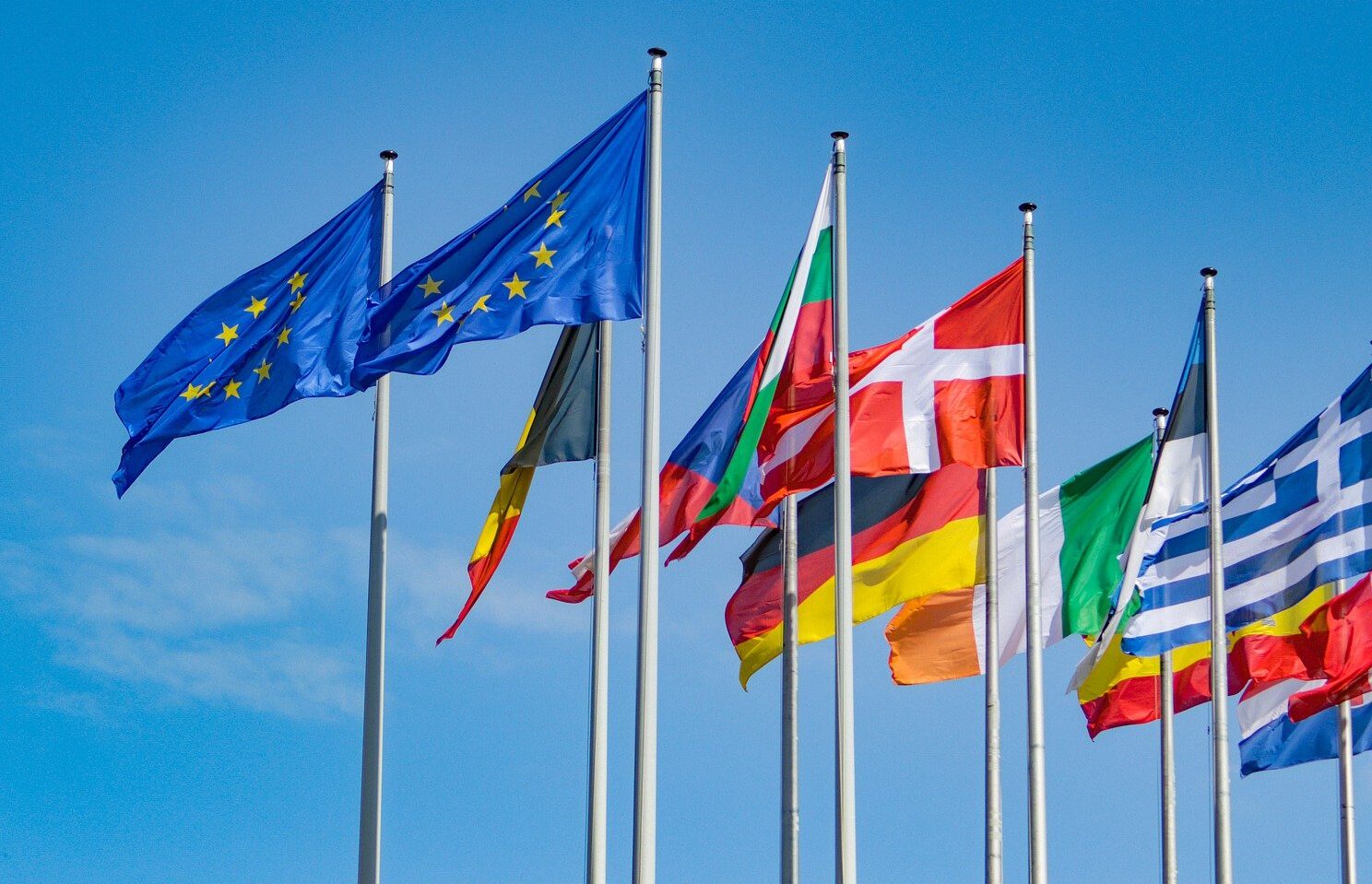The nature of the European Union is based on cultural, identity, and language diversity. The EU strives to represent the union in diversity, hence it is proud of the different cultures and languages that make up the entirety of its territory. Therefore, the promotion of language learning across Europe is a key component of the European reality, whether it is for personal or professional opportunities, cultural awareness and understanding, and the competencies that a multilingual profile provides for business growth and success.
However, the co-existence of languages within this region also has its challenges. The lack of language learning hinders the ability of people to move around the different countries and mutual understanding between European citizens. It might decrease the opportunities that non-learning individuals have over others, and this is precisely why language education is essential, and an undeniable truth nowadays.

By 2020, 88% of pupils in secondary education in the EU were learning English ad their main foreign language, but only 49% were learning two or more foreign languages. There is also a huge difference between countries; the proportion of students learning numerous foreign languages in countries like Hungary, Ireland, Austria, and Bulgaria is very low, while other countries like Italy, France, Greece, and Luxembourg had rates of almost 100%. These differences constitute a threat to future opportunities for individuals belonging to the former countries, and the EU is aware of the need to do something to change the situation.
Through the Erasmus+ program, the EU provides Europeans with the opportunity to improve their language and cultural learning while living in another country, whether it is through educational courses or traineeships. Other programs of interest that the EU funds are the LISTIAC project to provide linguistic sensitivity, and the MultiMind project to promote multilinguistic research.
European Diplomats can help you establish government relations so your company can enrol and promote multilinguistic learning within the European Union. Languages in Europe constitute an outstanding opportunity for those businesses who seek to positively shape the future. Let us guide you through government.
References
European Commission. “About multilingualism policy. The importance of multilingualism.”
Eurostat. 2023. “Foreign language learning statistics.”



